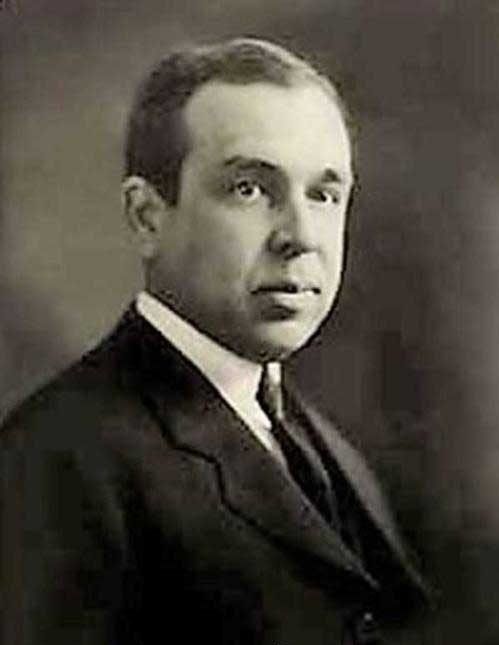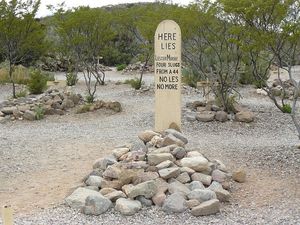In Tombstone, Arizona, there is a cemetery dating from cowboy days called Boot Hill. On one of the grave-markers is scrawled the following inscription:
Here lies Les More.
He took three slugs
From a fourty-four.
No less, no more.
Have you ever thought about what you would like carved or inscribed on your tombstone? How about what the preacher will say during the eulogy at your grave-side? Or, have you considered your obituary, what you would like the newspapers to report at the time of your death?
The death of Saul
I have recently been studying David’s lament over the death of Saul recorded in 2 Samuel 1:17-27. David eulogizes Saul for being a warrior, for possessing great physical prowess and beauty, and for physically and economically caring for the nation of Israel.

Verse 23 tells us that both Saul and his son Jonathan were lovely to the eye, that is, they had physical grandeur. Saul and his son could run fast (faster than eagles!), and they were strong (stronger than lions!). Many people would look at the characteristics and accomplishments of Saul and regard them as both valuable and honorable. But wait a minute — something is missing. Something is not right about this eulogy!
Yes, Saul may have been a great warrior, but did he wield the sword of the Word of God? He may have been swifter than an eagle, but did he carry the good news of the Word of God? Yes, Saul may have been stronger than a lion, but did he share the good news of the Lion of Judah?
Although the world would see this passage as a wonderful epitaph to a mighty man, it is really hollow and empty. Where was the godliness, the holiness, the humility, and the integrity? David’s hymn is simply a worldly and vain eulogy.
Frankly, it sounds like so many funeral sermons today. How many funerals have you been to in which the pastor praises a good man who took care of his family; a really nice guy. He was (perhaps) a great athlete when he was young; he had a zest for life; he was a good worker; and so forth.
Now do not get me wrong — all those things are admirable traits. But they are very earth-centred. Where are the accolades of godliness, humility and spirituality? And that is the problem with David’s’ lament for Saul; there are no remarks of a spiritual nature.

After God’s own heart
The pathetic nature of the lament for Saul is further emphasised by the obvious contrast between the two kings, Saul and David. All of the accolades given to Saul in the funeral dirge also applied to David. One of Saul’s servants said of David: ‘Behold, I have seen a son of Jesse the Bethlehemite who is a skilful musician, a mighty man of valor, a warrior, one prudent in speech, and a handsome man; and the Lord is with him’ (1 Samuel 16:18).
Indeed, David was a great warrior (remember Goliath!); he was swifter than an eagle, stronger than a lion, and he possessed a greater kingdom than Saul. But what of David’s obituary? What is he remembered for? What line would be placed on his gravestone?
When the apostle Paul spoke at the synagogue in Pisidian Antioch he gave a memorial for David: ‘And after God removed Saul, he raised up David to be their king, concerning whom he also testified and said, “I have found David the son of Jesse, a man after my heart, who will do all my will”’ (Acts 13:22).
A man after God’s own heart! Not a man swifter than eagles, although that would be true. Not a man stronger than lions, though that also would be true; but a man after God’s own heart!
Death of the godly
When Robert Murray McCheyne, the well-known Scottish pastor, died at the youthful age of twenty-nine, many people delivered eulogies regarding his life. One London pastor said: ‘McCheyne was altogether one of the loveliest specimens of the Holy Spirit’s workmanship’.
The Dundee newspaper (Dundee being the city of McCheyne’s pastorate) stated: ‘His mind was so full of Christ that he sought to introduce the glorious subject that was always uppermost with him’.
Another famous pastor in Scotland in the 19th century, Alexander McLeod, has two inscriptions carved on his gravestone: ‘Blessed are the dead that die in the Lord’, and ‘A great man has fallen in Israel’.

J. Gresham Machen, the founder of Westminster Seminary, asked that the following words be inscribed on his tombstone:
‘Were the whole realm of nature mine,
That were a present far too small;
Love so amazing, so divine,
Demands my soul, my life, my all’.
How does Saul’s epitaph measure up to these eulogies of great men of the faith? Not well at all.
How about you?
What will be said of you when you die? Will you be like W. C. Fields who, reflecting on his own impending departure, remarked: ‘On the whole, I’d rather be in Philadelphia’. George Bernard Shaw asked that his gravestone read: ‘I knew if I stayed around long enough, something like this would happen’.
Ernest Hemingway wanted a simple phrase on his marker: ‘Pardon me for not getting up’. Will you be remembered for your earthly achievements? Physical prowess? Intelligence? Financial success? Humour?
Or will you be remembered for your godliness, spriritual character, integrity and Christ-likeness? Christians must strive for eternal things; we must keep our eyes on the spires of the heavenly city.
We must be like David, men and women ‘after God’s own heart’. And at death we will receive the greatest epitaph of all, when Jesus exclaims: ‘Well done, good and faithful servant!’








